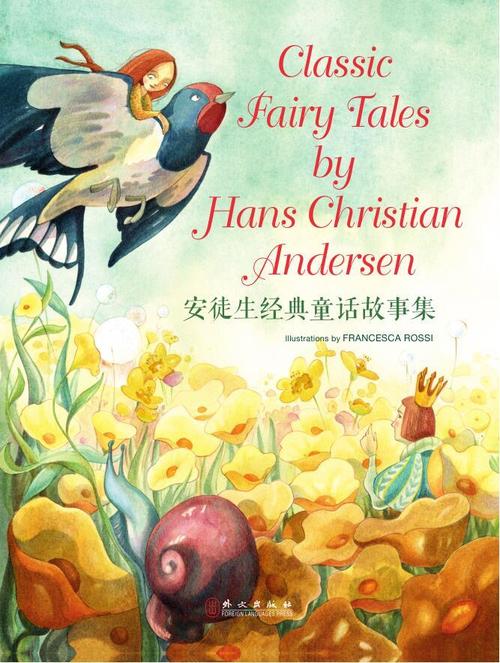童话故事英文怎么说
Choosing English Names for Fairy Tale Characters
In the enchanting realm of fairy tales, selecting the perfect name for your characters is essential to captivating your audience and crafting a memorable story. Here are some tips and guidelines to help you choose fitting English names for your fairy tale protagonists:
1.
Character Traits and Attributes:
Personality:
Consider the traits and qualities of your character. Are they brave like "Arthur" or kindhearted like "Eleanor"?
Appearance:
Reflect on physical features. Names like "Scarlett" for a redhaired character or "Gabriel" for an angelic figure can add depth.
Role in the Story:
The name should resonate with the character's role. A wise mentor could be called "Merlin," while a young heroine might suit a name like "Alice" or "Ella."2.
Time Period and Setting:
Historical Context:
For tales set in a specific era, research names that were popular during that time. "Victoria" for Victorian settings or "Edmund" for medieval adventures, for example.
Cultural Influence:
Consider the cultural background of your story. "Leila" might fit a Middle Eastern setting, while "Hans" could suit a Germanicinspired tale.3.
Symbolism and Meaning:
Symbolic Names:
Choose names with meanings that align with the character's journey or attributes. For instance, "Felix" meaning lucky or "Aurora" meaning dawn.
Wordplay:
Play with names that have symbolic or thematic significance. "Iris" for a character with a connection to rainbows or "Gideon" for a character who must overcome adversity.4.
Avoiding Stereotypes and Clichés:
Originality:
While traditional names can evoke a sense of familiarity, strive for uniqueness. Avoid overly used names like "Prince Charming" or "Cinderella."
Diversity:
Embrace diversity in your character names to reflect a multicultural world. Explore names from various backgrounds and languages.5.
Phonetics and Readability:
Ease of Pronunciation:
Choose names that are easy to pronounce and remember, enhancing readability for your audience.
Rhythmic Flow:
Consider how the name sounds when spoken aloud and its cadence within the narrative.6.
Character Development:
Name Evolution:
Allow the character's name to evolve as their journey progresses. A shy character might adopt a stronger name as they grow in confidence.
Name Symbolism:
Use the character's name as a storytelling tool, with changes or revelations in the name reflecting inner growth or transformation.7.
Audience Appeal:
ChildFriendly Names:
For children's fairy tales, opt for names that are simple, engaging, and easy to relate to.
CrossGenerational Appeal:
Choose names that resonate with both children and adults, adding layers of meaning for different age groups.Examples of English Names for Fairy Tale Characters:
Male Characters:
William (Will) A brave knight on a quest.
Oliver A mischievous but lovable young adventurer.
Benjamin (Ben) A kindhearted woodsman with a secret.
Theodore (Theo) A wise old sage guiding the protagonist.
Sebastian A charismatic prince seeking true love.

Female Characters:
Amelia (Amy) A determined princess defying expectations.
Sophia A gentle healer with a magical touch.
Lily A curious young girl discovering a hidden world.
Isabella (Bella) A fierce warrior protecting her kingdom.
Juliet A romantic dreamer yearning for adventure.
Remember, the name you choose for your fairy tale character is more than just a label; it's a key that unlocks their essence and invites readers into their extraordinary world. Choose wisely, and let the magic of storytelling unfold.











